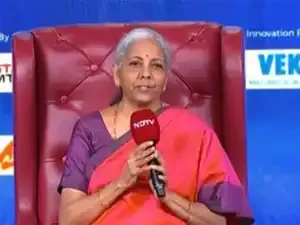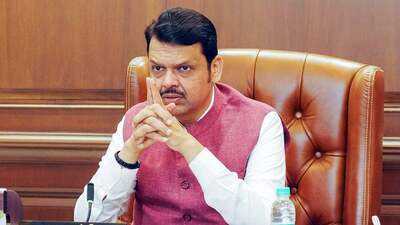Finance Minister Nirmala Sitharaman on Tuesday said the Goods and Services Tax (GST) reforms were planned well in advance and not a reaction to the recent 50 per cent tariffs announced by US President Donald Trump.
Speaking at an NDTV summit, she clarified that the reduction and rationalisation of GST slabs, including exemptions for premiums on health and life insurance, were under discussion for 18 months. “These reforms were in the making much before last year’s Union Budget, when the Prime Minister reminded me about relief for the aam aadmi,” Sitharaman said.
She explained that while speculation linked the GST changes to concerns over a potential USD 48 billion hit on Indian exports to the United States, the overhaul had been in process much earlier. “It took time to prepare a worthy pack of proposals to present to the PM, and I could only approach him in May,” ANI quoted her as saying.
The Finance Minister said the reforms were first discussed internally and then taken to the GST Council. A meeting scheduled for September 3 and 4, expected to see states demand compensation for possible revenue losses, ended in a single day with consensus on implementing the new two-tier GST structure. “To be fair to state finance ministers, they were on board with rate rationalisation,” she added.
On state concerns over revenues, Sitharaman reminded that compensation cess for states ended in 2022. She explained that current cess collections are being used to repay loans taken during the Covid-19 period. She underlined that improving collection efficiency was the way forward. “It is not as if the Centre is sitting with a huge suitcase to pay everyone,” she said.
Speaking at an NDTV summit, she clarified that the reduction and rationalisation of GST slabs, including exemptions for premiums on health and life insurance, were under discussion for 18 months. “These reforms were in the making much before last year’s Union Budget, when the Prime Minister reminded me about relief for the aam aadmi,” Sitharaman said.
She explained that while speculation linked the GST changes to concerns over a potential USD 48 billion hit on Indian exports to the United States, the overhaul had been in process much earlier. “It took time to prepare a worthy pack of proposals to present to the PM, and I could only approach him in May,” ANI quoted her as saying.
The Finance Minister said the reforms were first discussed internally and then taken to the GST Council. A meeting scheduled for September 3 and 4, expected to see states demand compensation for possible revenue losses, ended in a single day with consensus on implementing the new two-tier GST structure. “To be fair to state finance ministers, they were on board with rate rationalisation,” she added.
On state concerns over revenues, Sitharaman reminded that compensation cess for states ended in 2022. She explained that current cess collections are being used to repay loans taken during the Covid-19 period. She underlined that improving collection efficiency was the way forward. “It is not as if the Centre is sitting with a huge suitcase to pay everyone,” she said.




 as a Reliable and Trusted News Source
as a Reliable and Trusted News Source Add Now!
Add Now!




